Observations of a Traveler: New Zealand and Australia
Blog post description.
TRAVEL OBSERVATIONS
The Observations of Traveler series, is meant to summarize our observations and musings on each country we visit in sum, focusing on unique culture, customs, or physical characteristics that we notice. It is NOT meant to be a fully complete or accurate account of a people or a place. We are observers from the outside, often not knowing the language, and with limited time to interpret those people and places. Please do not take our observations with insult or as a truth. These observations are simply that, observations of travelers enjoying the experience and trying our best to understand the world around us.
Our Sisters in Name and Practice
One takeaway that probably isn't too big a surprise, was that both these former British colony nations feel very akin to the United States. My feeling in visiting was--these people, their culture, attitude, world outlook, and politics are just like ours. I would say this not just because they are western, white and english-speaking. For instance, I felt that these countries felt more like the US than Britain or other countries I've visited in Europe. I think there is something to all three of our nations being "discovered" quite late in world history, and all that comes along with that including grappling with the fac that westerners didn't discover them at all and how we dealt with (and continue to deal with) the native populations we suppressed, displaced, and in some cases annialated. For a reason I have struggled to articulate, Australia feels most akin of all, more than New Zealand or perhaps even Canada. Something about the large land mass (go west young man), gold rush past, and smiley, it's all good man(mate) felt far more American than New Zealand's backwater calm, Canada's nice, or Britain's enlightened reformed colonialism. While Australia's government structure is arguably more like Britain's parliamentary system, this large nation is also shares a similar federalized structure to the US with strong state and local governments, overseen but often not overpowered by the national government. Conversely, New Zealand's small nation has local governments and territories, but with minimal ascribed power that is easily overrun by the parliament.
There's the other more obvious stuff too. They dress like us, speak like us, use the dollar (at a slightly lower value) like us, and are democracies like us. The similarities are so strong that even tiny differences become notable and amusing. For instance, I was endlessly delighted that Australians say "no drama" instead "no problem".
Australians Swim, New Zealanders attend Church
If I were to pick out a single cultural proclivity that stands, I'd note that New Zealand felt quite Christian compared to the United States. Many people we met mentioned church or religious ties quite quickly in conversation and the radio channels were pretty dominated by christian music or talk radio. Frankly though, the stats don't seem to bear this out: the New Zealand census shows nearly half of residents are non-religious (more than the US) and they have the same spattering of other religions we have as well.For Australia it was people's love of swimming and number of swimming pools! As we mention in one of our posts on Sydney, they have incredible ocean-side pools, some directly linked to ocean-water and other fully separated, all along the coast. It also seemed that wherever we traveled there were highly quality public swimming pools (some of them Olympic length) readily available. Also, wherever we went with any kind of water body, ocean, river pool, pond, we'd find Australians gleefully swimming, leaping, paddling, and otherwise loving their time in the water. This observation does bear out in the stats. Australia has the highest pool ownership per capita in the world with 1.2 million private pools, and more than 30,000 new ones are being installed a year, I didn't find stats on number of public or community pools but I bet that number is very high as well.
Police are Savage
One of our rental car company hosts in Victoria, Australia told us the police were "savage" and I had to agree. We got stopped three times in one day to be breathalized as standard practice. I'm not sure the savage enforcement resulted in better driving; I found Australians to be aggressive drivers who rarely cared to let you in and while they rarely speeded, also rarely signaled. New Zealand...felt too empty to need enforcement. On the South Island, while driving on the many two lane roads wending through the countryside, one might not see another car for an hour at a time. And one could drive through small towns from one end to other through roundabout after roundabout without a signal in sight. We finally encountered some actual traffic near Auckland, Rotorua, and Wellington, but everyone seemed far to chilled out by the intervening nothingness to mind.
The Birds!
I wrote about the birds in of New Zealand before. Along with the kiwi, there was the tui (with a white puffy beard and a call that sounded intermittently like a creaky door and frog), the pukeko (aka swamp-hens whose thick red bill and awkward gate made me laugh), kea (large green parrots that are mischievous troublemakers and possibly the smartest birds on earth)and the moa (extinct now, but alive and kicking up until the late 1800's, these guys were ostriches on steroids).
As it turns out, the birds of Australia were equally entertaining. There were the "bin hens" of Sydney, which are actually a type of ibis, but common on city streets and making use of their long beaks to extract trash from the receptacles. There were cockatoos, whose stately white breast tall yellow crests make them prize exotic pets in the US and a rare sighting, but are so common in the wild (and urban landscape) of Australia they seemed more like pidgins. There were the kookaburra of laughing lullaby fame. And then there were emus, which despite being wild are surprisingly tame, and wander grass fields and campgrounds as would a deer (or kangaroo if you're in Australia). Lastly, the cassowaris, which we did not see outside a zoo, and that's good because apparently they the "world's most dangerous bird" and have killed humans, although their aggressiveness may be a bit overblown.
The Edge of the Earth
Perhaps not surprisingly, you had the distinct feeling of being on the edge of the earth and sometimes the edge of civilization in New Zealand and Australia. It's not that they're not civilized, what the scones, and high tea, and well run public transit systems. Its rather, just how uncrowded things get the moment you leave behind an urban boundary. And how several places we visited had native penguin populations. How weather blew in directly from the Arctic. With fourteen hour drives between major cities. And campgrounds that were virtually empty, on holiday weekends, in the summer. And spiders the size of a fist and deadly to humans with their native habitat the suburbs of the capital. As if you might take a wrong turn and end up in Antarctica and never see another human ever again. How you might just get lost stepping from your Airbnb directly into the "bush". It was a fun feeling! Also scary.
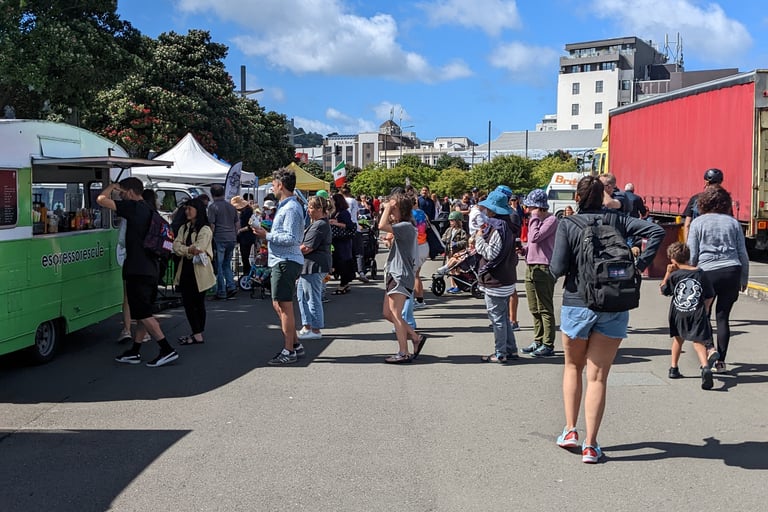

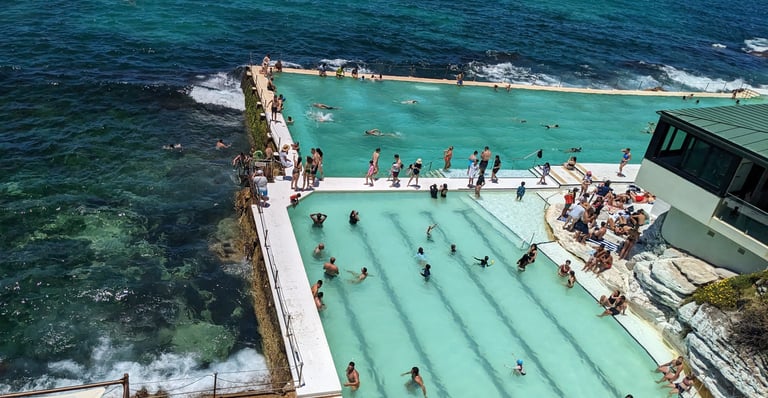

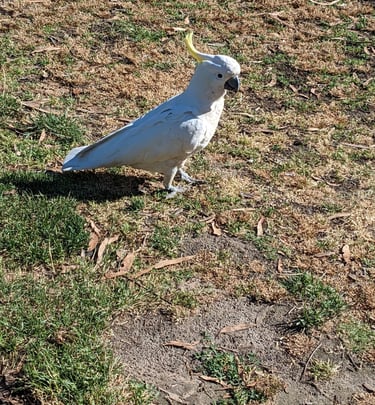

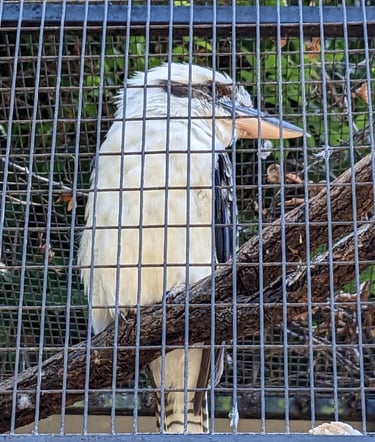

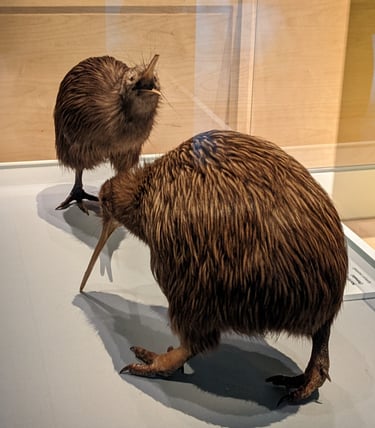

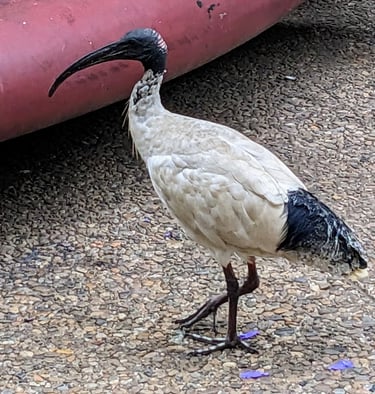

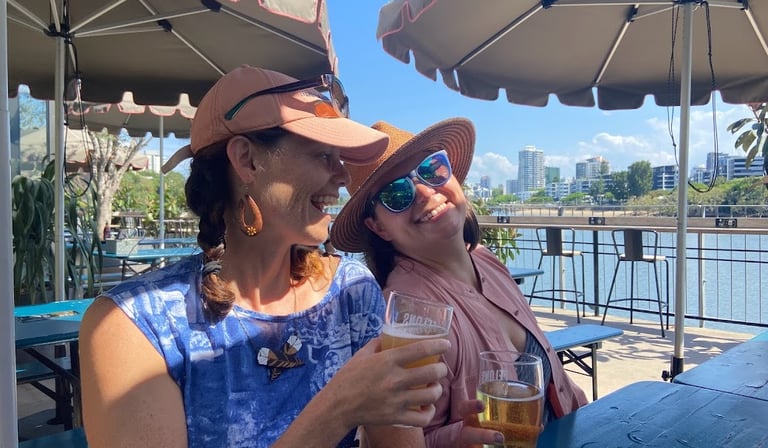

Kiwis like a good food truck as much as any bald eagle.
Australians love their large patio breweries as much as any American.
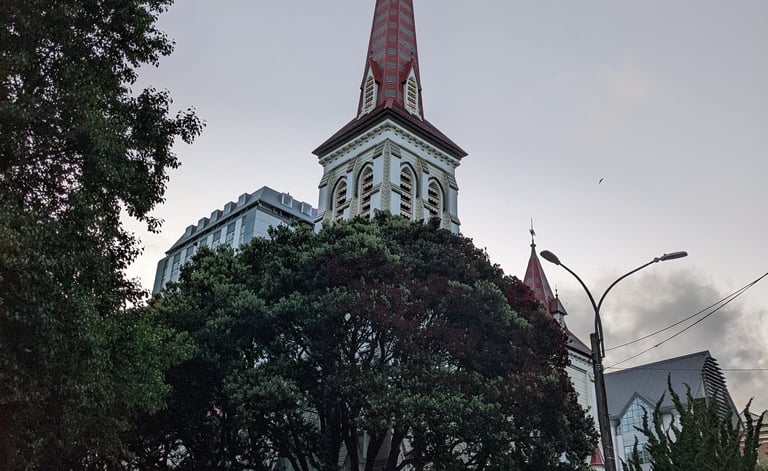

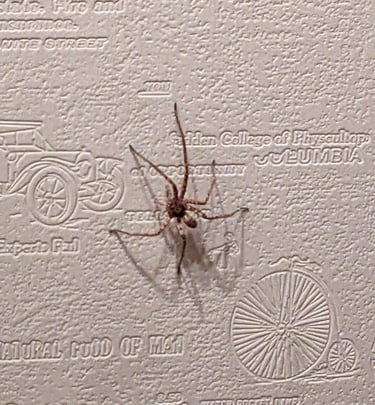

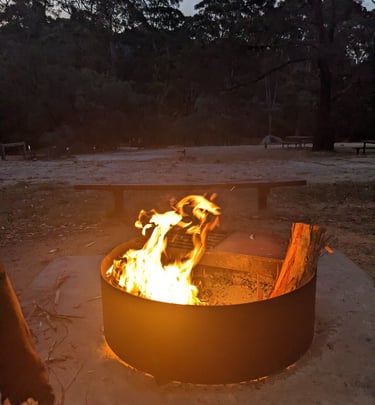

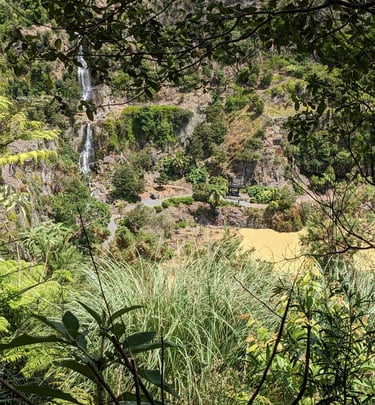

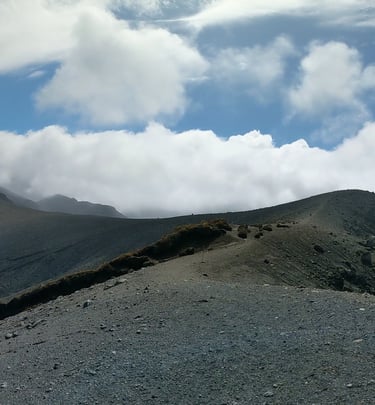

The very scary looking but apparently generally chill huntsman spider visited us several nights in our Sydney Airbnb on her nightly rounds
We had this campground in the Grampians National Park virtually to ourselves (except for the kangaroos and emus wandering through
Shadie and I started this hike from a quiet botanic gardens ended up on an unmaintained, deeply overgrown fern filled tropical wildland. We barely survived! Or rather slipped alot and got scratched and spider webby
Nothing like a volcanic landscape to feel like your on the edge of the world
